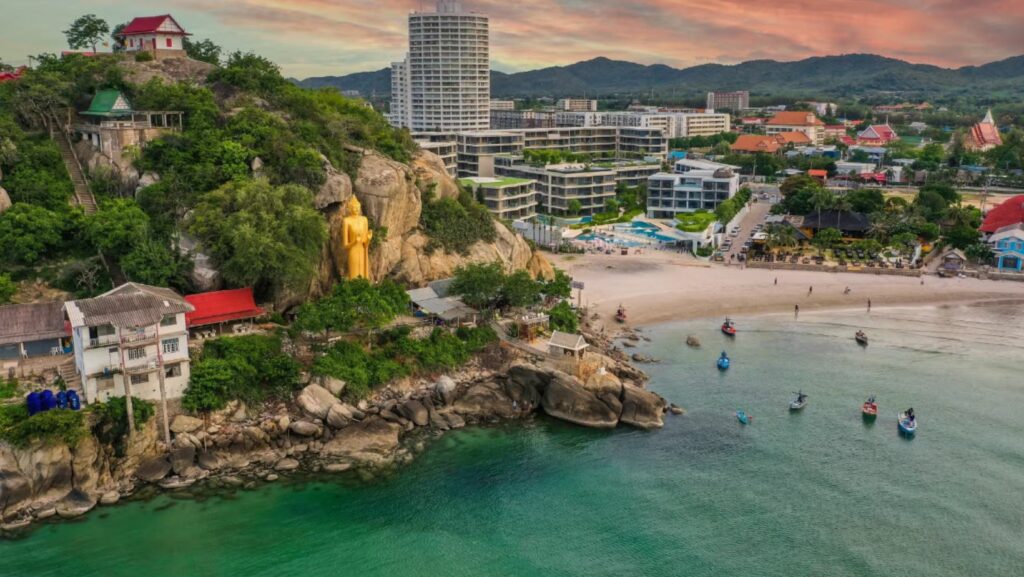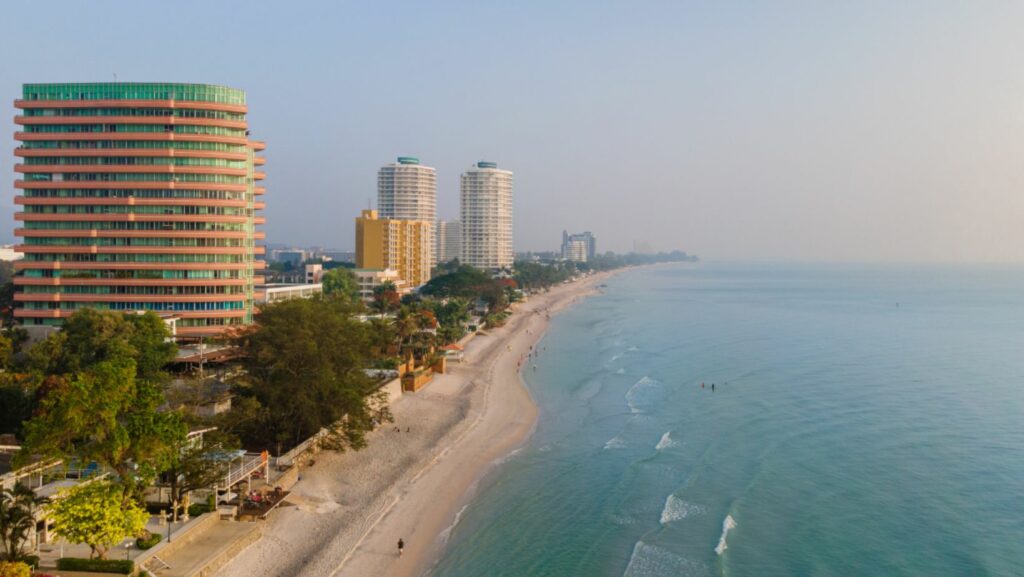Nestled on the Gulf of Thailand, Hua Hin has transformed from a quiet fishing village into a sought-after destination for travelers, retirees, and investors. Known for its tranquil beaches, world-class golf courses, and vibrant night markets, it offers a high quality of life just a few hours from Bangkok. It’s no surprise that Hua Hin property for sale is catching the eye of many foreigners.
If you’re dreaming of owning a slice of this paradise, you’re in the right place. Navigating the Thai property market can seem complex, especially with laws specific to foreign ownership. This guide breaks down everything you need to know about buying property in Hua Hin as a foreigner, from legal requirements to the step-by-step purchasing process. By the end, you’ll have a clear roadmap for your Thailand property investment.
Understanding Foreign Ownership Laws in Thailand
The most important thing for any foreign buyer to understand is that Thai law prohibits non-nationals from owning land directly. While this might sound like a major roadblock, there are several well-established legal pathways that allow foreigners to securely invest in and enjoy property in Hua Hin.
Option 1: Buying a Condominium (Freehold)
This is the most straightforward and popular option for foreigners. Under the Condominium Act, non-Thais can own a condominium unit outright in their own name. This is known as “freehold” ownership. However, there’s a key restriction: the “49% rule.” This rule states that foreigners can collectively own up to 49% of the total sellable floor area in any single condominium project. The remaining 51% must be owned by Thai nationals.
When purchasing a condo, it’s crucial to verify that the foreign ownership quota has not been exceeded. A reputable real estate agent and lawyer will handle this as part of the due diligence process.
Option 2: Leasing Land (Leasehold)
Since foreigners cannot own land, purchasing a house or villa involves a different structure. The common practice is to secure a long-term lease on the land where the property is built. Foreigners can enter into a leasehold agreement for a maximum of 30 years, which can be registered at the local Land Department office.
These leases are often renewable, and contracts can be structured to include successive 30-year renewal clauses. While you lease the land, you can own the physical building or structure on it. This provides a secure and legally recognized way to have a home in Hua Hin.
Option 3: Setting Up a Thai Company
Another method, though more complex, is to set up a Thai limited company to purchase the land. Under this structure, the company owns the property. However, Thai law requires that at least 51% of the company’s shares are held by Thai nationals. This route requires careful legal and financial planning and is generally recommended for larger or more commercial investments rather than a simple holiday home. Strict regulations are in place to prevent the misuse of this structure, so expert legal advice is essential.
Step-by-Step Guide to Buying Property in Hua Hin
Once you understand your ownership options, the process of acquiring your dream property follows a clear path. Here is a typical step-by-step guide for a foreigner real estate purchase in Hua Hin.
1. Find Your Ideal Property
The first step is the most exciting: finding the right property. Whether you’re looking for a modern beachfront condo or a private pool villa, Hua Hin offers a wide range of options.

Working with a trusted local real estate agent can save you time and provide access to the best listings that match your criteria.
2. Make an Offer and Negotiate
After you’ve found a property you love, your agent will help you make an offer and negotiate the price and terms with the seller. This stage often involves signing a reservation agreement and paying a small, refundable deposit to take the property off the market.
3. Conduct Legal Due diligence
This is arguably the most critical step. You must hire an independent lawyer to perform thorough due diligence. This process involves:
- Verifying the seller has a clear and legal title deed for the property.
- Checking for any existing mortgages, liens, or other encumbrances on the property.
- Ensuring the building has all the necessary construction permits and complies with local regulations.
- Confirming the foreign ownership quota if you’re buying a condo.
4. Sign the Sale and Purchase Agreement (SPA)
Once your lawyer gives the green light, you will sign the Sale and Purchase Agreement (SPA). This legally binding contract outlines all the terms and conditions of the sale, including the price, payment schedule, and transfer date. The agreement is typically written in Thai, with an English translation provided.
5. Transfer Funds from Abroad
To comply with Thai law and to be able to register your ownership, the purchase funds must be transferred into Thailand from an overseas source in foreign currency. You’ll need to transfer the money to a Thai bank account and obtain a Foreign Exchange Transaction Form (FETF) for any amount over $50,000 USD. This document is required by the Land Department to complete the title transfer.
6. Register Ownership at the Land Department
On the agreed-upon transfer date, you (or your lawyer, acting on your behalf with a Power of Attorney) will meet the seller at the local Land Department office to finalize the transaction.

All necessary taxes and fees are paid, and the ownership is officially registered. If you are buying a condo, the title deed (chanote) will be updated with your name. For a house, the lease agreement will be registered.
7. Complete the Transaction and Handover
After the registration is complete, the final payment is made to the seller, and you will receive the keys to your new Hua Hin property. Congratulations, you are now a homeowner in Thailand!
Key Tips for Foreign Buyers in Hua Hin
To ensure your Thailand property investment is a success, keep these essential tips in mind:
- Always Use an Independent Lawyer: Do not rely on the seller’s or developer’s legal team. An independent lawyer will represent your interests and protect you from potential pitfalls.
- Do Your Homework: Research the market, understand property values, and visit potential locations at different times of the day to get a feel for the neighborhood.
- Understand All Costs: The purchase price is just one part of the equation. Factor in taxes, transfer fees, legal fees, and ongoing costs like maintenance fees and property taxes.
- Financing is Limited: Obtaining a mortgage from a Thai bank is very difficult for foreigners. Most purchases are made with cash transferred from abroad. Plan your finances accordingly.
Your Hua Hin Dream Awaits
Buying property in Hua Hin as a foreigner is an achievable and rewarding venture. While the legal landscape has its unique rules, following the correct procedures and working with experienced professionals makes the process smooth and secure. By understanding your ownership options and conducting thorough due diligence, you can confidently invest in a property that will bring you joy for years to come.
Whether you’re seeking a retirement haven, a holiday getaway, or a solid investment, Hua Hin offers a compelling blend of lifestyle and opportunity. With the right guidance, your dream of owning a home in this Thai paradise can easily become a reality.

